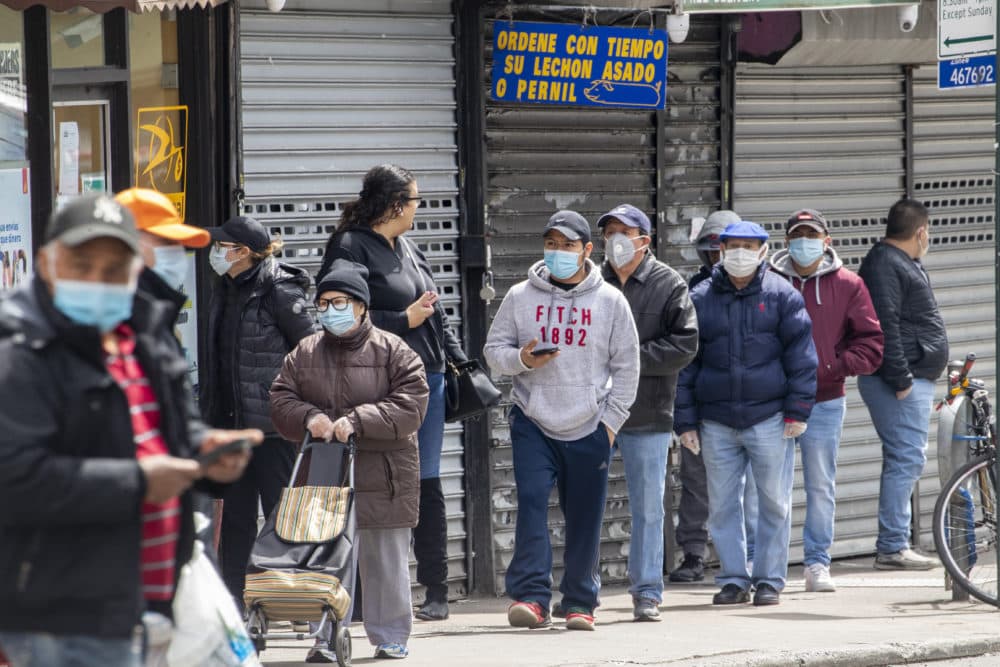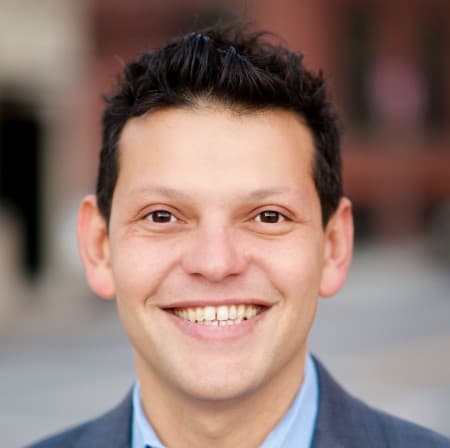Advertisement
Commentary
Don't Criminalize The Coronavirus

Perhaps you’ve seen the video of Philadelphia police officers forcibly dragging a man off a public bus because he wasn’t wearing a face mask.
This is not an isolated incident. In New Jersey and Missouri, prosecutors are pressing criminal, and even terrorism charges, against people perceived as dangerous vectors of coronavirus infection. New York is considering fines for people who don’t adhere to a new rule, requiring people to wear face coverings in public.
This tendency to criminalize — in the name of public health and safety — is alarming, particularly as the virus becomes increasingly associated with people of color and immigrants.
The structural racism in the criminal justice system is well-known and well-documented. Studies show that blacks are incarcerated across the country at more than five times the rate of whites. Latinx incarceration disparities are also disturbingly high, particularly in Massachusetts, which has one of the highest imbalances: for every one person behind bars, there are four Latinx people locked up.
Over-policed communities are now at the heart of the COVID-19 crisis. Information from hospitals and public health data -- released by the state in response to the sustained advocacy of Lawyers for Civil Rights, community groups, elected officials and health professionals — confirms off-the-charts coronavirus infection rates in majority-minority communities, particularly in Chelsea, Brockton, Revere, Lawrence and East Boston.
This tendency to criminalize -- in the name of public health and safety -- is alarming...
These communities are disproportionately home to low-income people of color and immigrants who are at risk of infection, because many of them cannot stay at home. They are in the front lines cleaning contaminated workplaces and delivering groceries to those who are safely quarantined. Their essential work, that often pays meager wages, prevents them from sheltering at home, and exposes them to COVID-19 infection, illness and death — and potentially to prosecution and criminalization.
The U.S. Department of Justice has also issued problematic guidance, announcing that “threats to intentionally infect other people” with the coronavirus may result in federal prosecution under the terrorism statute, because the coronavirus meets "the statutory definition of a 'biological agent'" or weapon. DOJ’s guidance is startling and over-broad, encompassing both “exposure and infection,” and sweeping a wide range of conduct into the criminal and terrorist realms.
Advertisement
To be clear, this health crisis is to be taken seriously. Yet, prioritizing criminalization over treatment and prevention fails to keep people safe. At a time when countless people are losing jobs and struggling to keep children fed — let alone engaged in their education — bringing coronavirus-related criminal charges misses the mark.
Law enforcement officials and prosecutors should heed the lessons learned from decades of draconian HIV-related criminalization laws.
Early in the HIV epidemic, public fear led many states to enact criminal statutes and penalties for failing to disclose HIV status; for exposing others to HIV; and for transmitting HIV intentionally or unintentionally.
These laws — still on the books in over 30 states -- prosecute people living with HIV for engaging in conduct that would otherwise be completely lawful if they did not know their HIV status. As advocates have long argued: take the test, risk arrest. In this manner, the criminal statutes are barriers to testing and treatment, which are critical to reduce the spread of HIV.
Prioritizing criminalization over treatment and prevention fails to keep people safe.
There is no evidence that HIV criminalization laws decreased rates of HIV transmission. Rather, HIV criminalization laws have been disproportionately wielded against marginalized communities. In fact, mishandling of HIV, based on antiquated and unscientific understandings of the disease, contributes to the over-policing and over-criminalization of people living with HIV, especially people of color and the LGBTQ+ community. No one is safer by criminalization, and HIV-specific criminal laws exacerbate discrimination and stigma.
President Trump and others have referred to the coronavirus as the “Chinese virus.” And much like HIV, it has already become associated with minority groups. Not surprisingly, discrimination and hate crimes against Asian Americans have spiked nationwide. Widespread criminalization of COVID-19 will only further this disturbing trend, particularly as fear and stigma expand to enshroud the black and Latinx communities that are now emerging as the face of the epidemic.
Communities of color are enduring a disproportionate burden of infection and death; instead of demonizing and subjecting them to arrest, we should be protecting them.
We need to stop the spread of the coronavirus. Any individual that intentionally acts to spread the virus is reprehensible, but allocating limited resources to criminalize ill people, rather than stop the spread of disease, is only amplifying the collective harm. We are all better served through a non-punitive public health response to COVID-19 -- centered on current scientific understanding and evidence-based research -- that focuses on education, treatment and prevention.
Let’s stop dedicating scarce resources to locking-up the most vulnerable.
